When it comes to cinematic depictions of literary characters Dracula is up there with Sherlock Holmes when it comes to the number of times he has been brought to the big screen, from F.W. Murnau’s silent masterpiece Nosferatu to Bela Lugosi in 1931’s Dracula, Christoper Lee's run in the Hammer Films and John Badham’s more sexy Dracula starring Frank Langella, basically, the adaptations of the world's most vampire seems almost endless, but what if the man behind The Godfather was to take a shot at such a classic horror story, what would that look like?
First off, I’d like to state that this film should have been called Francis Ford Coppola’s Dracula as it deviates so hard and fast from Bram Stoker’s novel that anyone familiar with the book would most likely suffer whiplash while viewing it, this is not to say that the movie doesn’t follow somewhat similar plot elements from the book or contain all the necessary characters to be called a Dracula movie, but so much of what is on screen is more “From the mind of Francis Ford Coppola” rather than that of Bram Stoker. It should also be noted that Bram Stoker did not so much as base his character on real-life Romanian ruler Vlad Dracula, a rather notorious individual with a penchant for impaling his enemies, he simply borrowed the name and scraps of miscellaneous information about him for this book, while here, Coppola clearly embraced the origins of his Dracula on that historical figure and even created a whole new origin story for him.
Historical Note: Vlad Dracula’s death was either at the hands of a Turkish assassin, or he himself was mistaken for a Turk by his own troops during battle and killed at their hands, he did not renounce God and become a cursed creature of the night. I also doubt he wore plastic armour.
The movie opens with a bizarre origin of Dracula (Gary Oldman) where we find him riding off to fight against the Ottoman Empire only to return home to find that his wife Elisabeta (Winona Ryder) had committed suicide after his enemies falsely reported his death. After a priest informs him that his wife's soul is now damned to Hell for committing suicide an enraged Vlad desecrates the chapel and renounces God, declaring he will rise from the grave to avenge Elisabeta with all the powers of darkness, which makes me ponder "What if the priest had a little more tack, think of all the suffering that could have been spared." The story then jumps ahead four centuries with solicitor Jonathan Harker (Keanu Reeves) being sent to Transylvanian to arrange Dracula's real estate acquisitions in London, this after the last solicitor went mad, but while staying at Castle Dracula his host finds a picture of his fiancée, Mina Murray (Winona Ryder), who Dracula believes is the reincarnation of beloved Elisabeta.
“Did you dare take my wife on an excellent adventure?”
Leaving poor Jonathon imprisoned in his castle, to be fed upon by his vampiric brides, Dracula books passage to England, along with fifty boxes of Transylvanian soil, taking up residence at Carfax Abbey to which he soon begins his mission of stalking and seducing poor Mina, well, not quite right away as he takes time to seduce/rape her best friend, the very sexily free Lucy Westenra (Sadie Frost), and he turns her into an undead creature like himself, and this is the heart of the problem with this take on Dracula as Coppola clearly wanted his vampire to be a tortured and sympathetic soul, one who simply wants to be reunited with his lost love, but Dracula is such a monster that any such sympathy must fall on deaf ears and the “relationship” he develops with Mina is far from romantic.
Dracula: “I’ve crossed Oceans of Time for you.”
Mina: “Didn’t you just turn into a wolf-creature and screw my best friend?”
Dracula: “We were on a BREAK!”
I guess everyone has their animal needs to fulfill.
The movie does include the book's entire cast of vampire hunters; with Lucy’s suitors, Lord Arthur Holmwood (Cary Elwes), Quincey Morris (Billy Campbell) and Dr. Jack Seward (Richard E. Grant), and Seward’s old mentor Dr. Abraham Van Helsing (Anthony Hopkins). What is bizarre here is Van Helsing's immediate assumption that she is the victim of the vampire as it is so abrupt and off-the-wall crazy that I’d assume Dr. Seward would have locked him up in the asylum rather than follow him into battle. There is no debating the fact that Anthony Hopkins is one of the finest living actors today but his performance in this film is staggeringly over-the-top and this is clearly the fault of the director and the script, case in point, while informing this group about vampires he starts dry-humping Quincey’s leg like a dog in heat while bellowing out “We are dealing with forces beyond all human experience, and enormous power. So guard her well. Otherwise, your precious Lucy will become a bitch of the Devil! A whore of darkness!” Strangely enough, this results in a trip to the crypt to lop off Lucy’s head, followed by a nice roast beef dinner, rather Van Helsing ending up sharing a room with Renfield, as one would logically assume would be the result.
“Academy Awards don't put food on the table.”
This film's interpretation of Dr. Abraham Van Helsing is more than a little eccentric, in the book he was just familiar with the subject matter of vampirism and when discovering the nature of Lucy’s blood loss he was able to provide advice for our heroes in their hunt for Dracula, but in this movie he has apparently been after Dracula for years, calling him “The foe I have pursued all my life” but if that were the case one must question his intelligence. If you’ve been searching for Dracula all those many years why not try, I don’t know, checking out his castle? It’s not like Dracula had been keeping a low profile, he was buying plots of land in London under his own name, so this makes Van Helsing the worst vampire hunter in the history of the world.
Is this Dracula’s castle or Castle Grayskull?
The film doesn’t treat poor Mina Murray much better, with this whole “reincarnated lover” and her seduction by Dracula making her character come across as either wishy-washy or confused, and because of Coppola’s intent in making Dracula sympathetic, we get scenes of him fighting off the urge to turn Mina into a vampire, not wanting to curse her with immortality, while she practically jumps his bones, begging to be turned. This all comes across as rather insane, one moment she is berating him for murdering her best friend and then the next second she is lapping up his blood and pleading with him to “Take me away from all this death!” I know some girls are into the whole “bad boy” image but this isn’t some grunge rocker, who may have some groupies on the side, he is literally a bloodthirsty monster. Simply put, the Dracula depicted here is not a tragic hero and all the corny dialogue in the world won’t change that fact.
“I’m Batman.”
The film does try to give Mina a little more agency than what her book counterpart had, who was basically just a meal ticket for Dracula, and instead of simply using Mina’s psychic connection to Dracula to help the vampire hunters on their chase Coppola has her perform the Coup de Grâce, mind you, this does not come about due to any realization that she’s fallen in love with a monster it’s more a case of her “freeing him” from his cursed life, stating at the end “There, in the presence of God, I understood at last how love could release us all from the power of darkness. Our love is stronger than death” and then he transforms back from the bat-faced monster into pretty Vlad, making this film into some kind of bizarro version of Beauty and the Beast. I’m sure glad all those people could die so that these two could have some kind of fucked up happy ending.
A tale as old as time.
Stray Observations:
• Elisabeta believes a note that was delivered by an arrow through her window, which begs the question “Was that how normal mail was delivered in the 1400s or is she just that stupidly gullible?”
• If denouncing God gave you superpowers and immortality, I’m surprised more people haven’t tried this.
• The British accent that Keanu Reeves attempts in this film is so hilariously bad it’s one of the film's more entertaining elements.
• Jonathon Harker’s boss mentioned that Dracula had been buying up plots of land all over London, which in the book was explained as being bolt holes where Dracula had stashed back-up coffins filled with Transylvanian earth, but in the movie, despite Jonathon seeing Dracula’s minions filling numerous boxes of earth, this is forgotten as Dracula flees immediately after Carfax Abbey is exposed.
• Is the fact that Dracula’s shadow is a bit disconnected in its movements a nod to the independent shadow of Peter Pan, a fellow immortal?
• If one of my vampire brides was Monica Bellucci, I don’t see the point in sailing off to London to get a new one, and I don’t care if that person is your reincarnated lost love, we’re talking Monica Bellucci here!
• Mina being the reincarnated love of the film’s monster is a plot element lifted right from the 1932 Universal film The Mummy and has nothing to do with Bram Stoker's novel.
• Dracula brings a baby for his brides to feed on, a nice midnight snack, but exactly how much blood do vampires need to survive, and if this is a regular thing why wouldn’t the local villagers have either stormed the castle with torches by now or packed up and moved?
“Hey girls, I got us some nice take-out!”
Needless to say, this is not exactly Bram Stoker’s Dracula, and I’m normally okay with filmmakers producing their own spin on a classic story but in this case, it’s a bit disingenuous to slap the author’s name right up there with the title as if this was the ultimate adaptation. I should point out that Coppola has not made a bad movie here, there are serious elements I have problems with but that does not intrinsically make this a bad movie as the look of the film is quite spectacular, with Coppola utilizing old school filmmaking techniques rather than more modern methods to pull off the required visual effects – the film nominated for four Academy Awards and won Best Makeup, Best Sound Effects Editing and Best Costume Design and should have one Best Art Direction as well – but on the acting front things are a little dicier. Sure, people love to point out Keanu Reeves and his terrible British accent but every actor in this movie was providing broad campy performances that would have gotten laughs if found in a High School production Little Shop of Horrors.
"We'll all be performing the Dinner Theatre version in Florida."
Somehow, due to this being a film by legendary director Francis Ford Coppola, we are to assume that this was some kind of brilliant artistic choice instead of what it was, a goofy and bizarre take on the subject matter that had no intentions of following the source material, that all said, the film can be called many things but boring is not one of them and with its amazing visual style and the “interesting” acting choices one can’t help but be a little entertained as well as amused. Bram Stoker’s Dracula may not be the definitive version of the book but it does get points for being bold, brash and a little crazy.
Note: Whether or not this is a good adaptation of Bram Stoker’s novel is an almost moot point when you consider the cultural impact the film had on the genre, with costume design by Eiko Ishioka creating a new image for the Count that would for the first time free him from the black cape he was most known for, but the film's offbeat narrative elements and questionable performances prevent it from becoming the classic that I’m sure Coppola had hoped it would achieve.
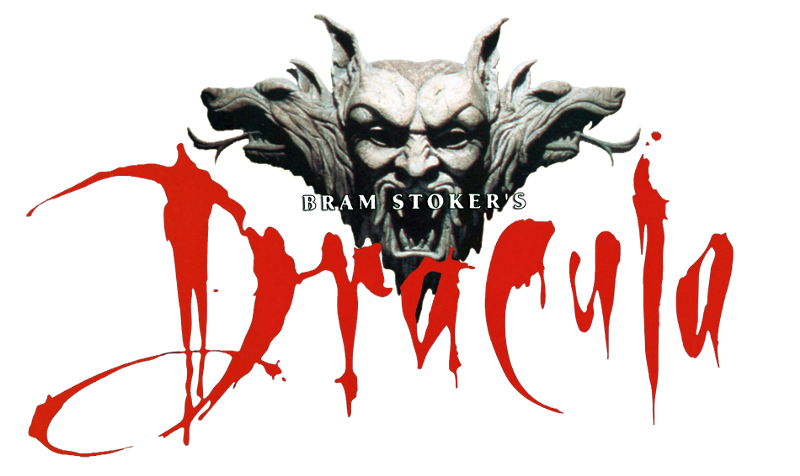
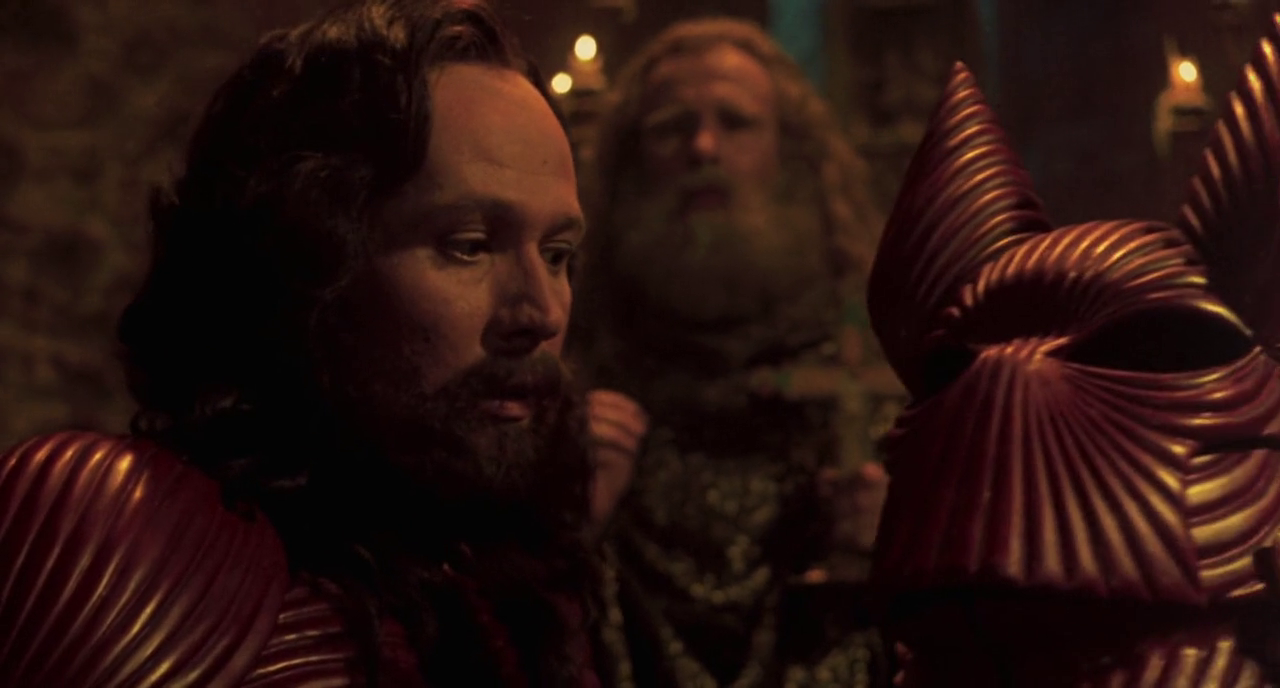
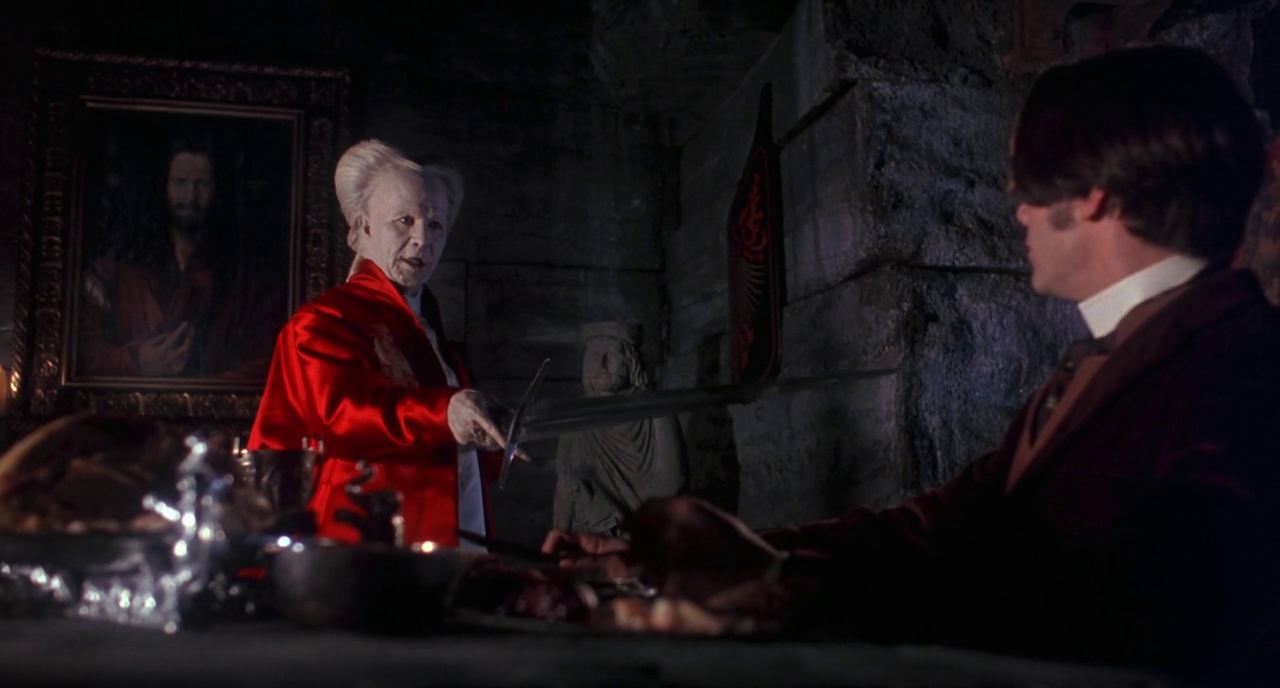
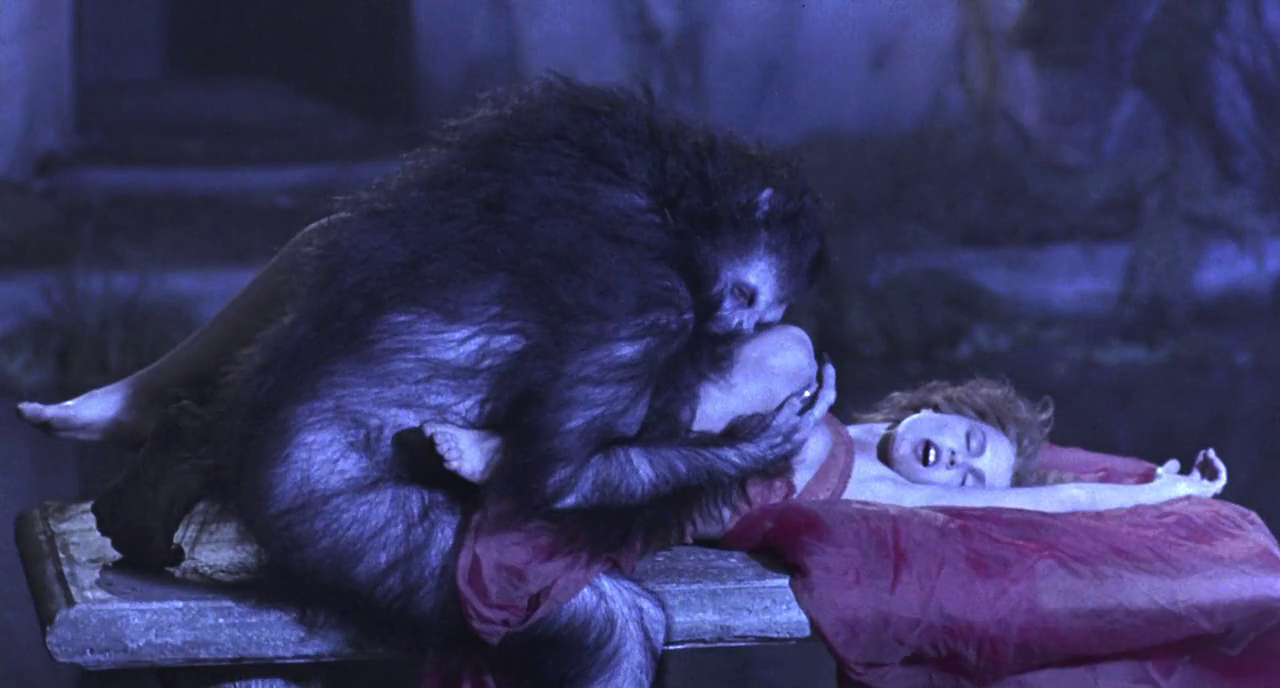
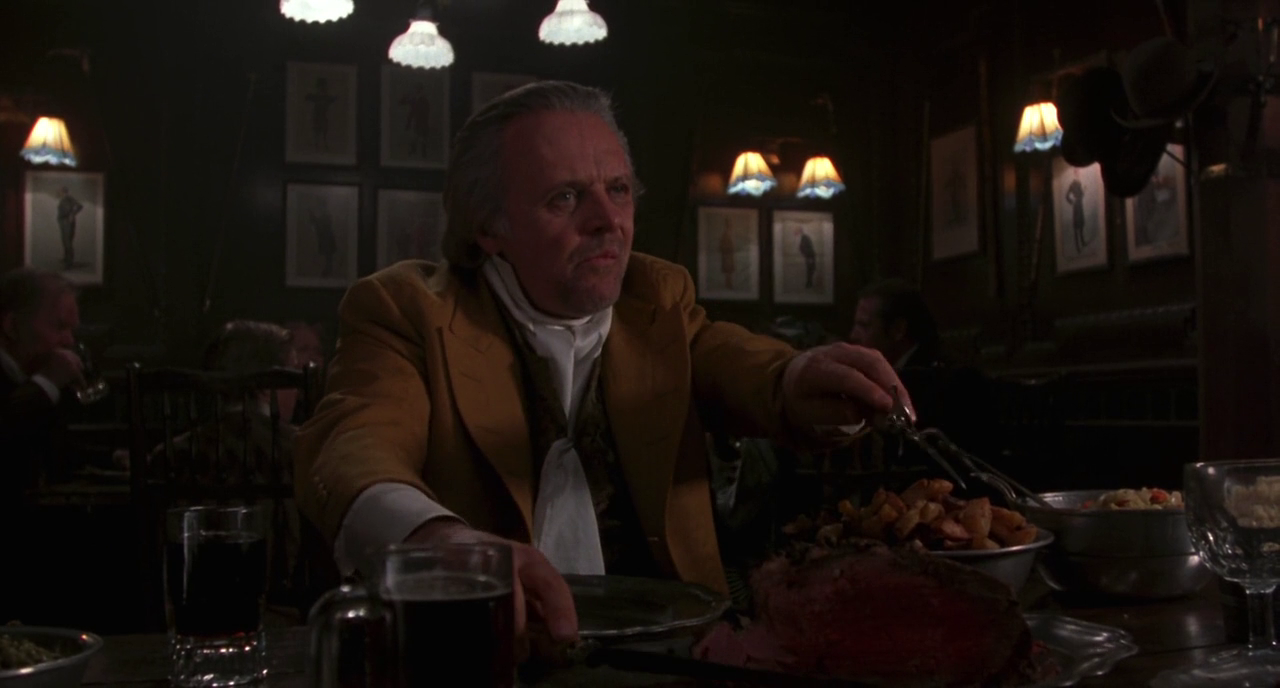
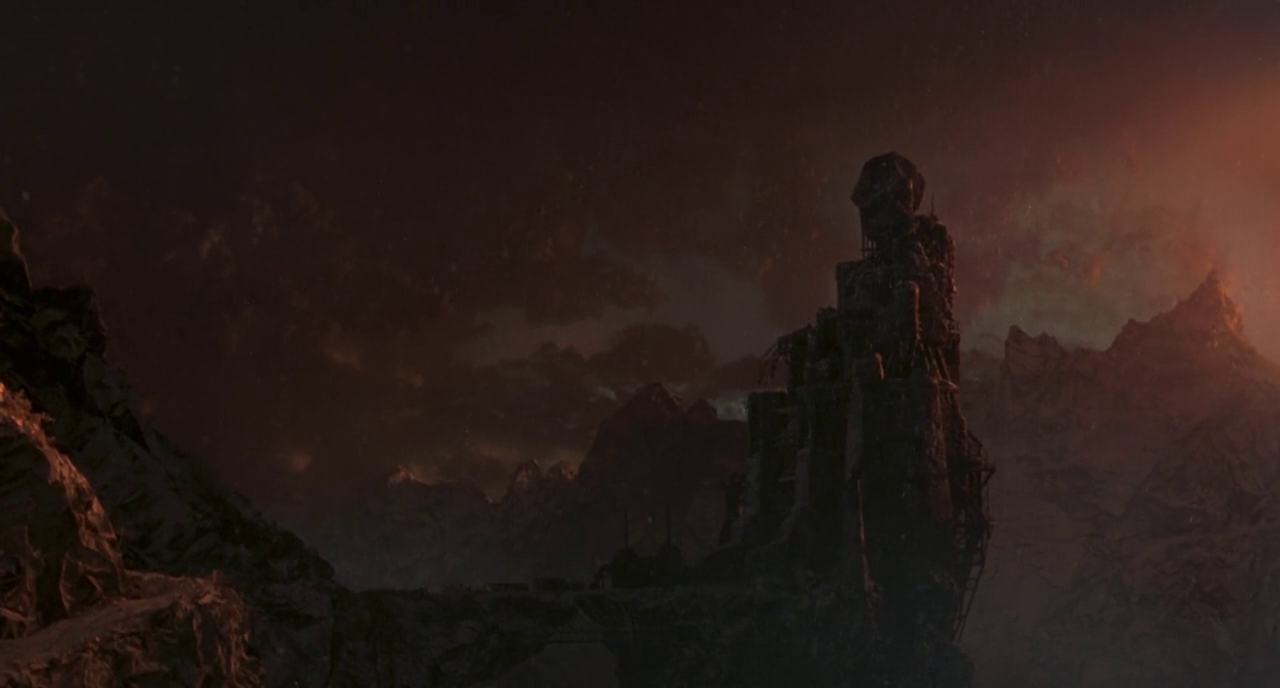
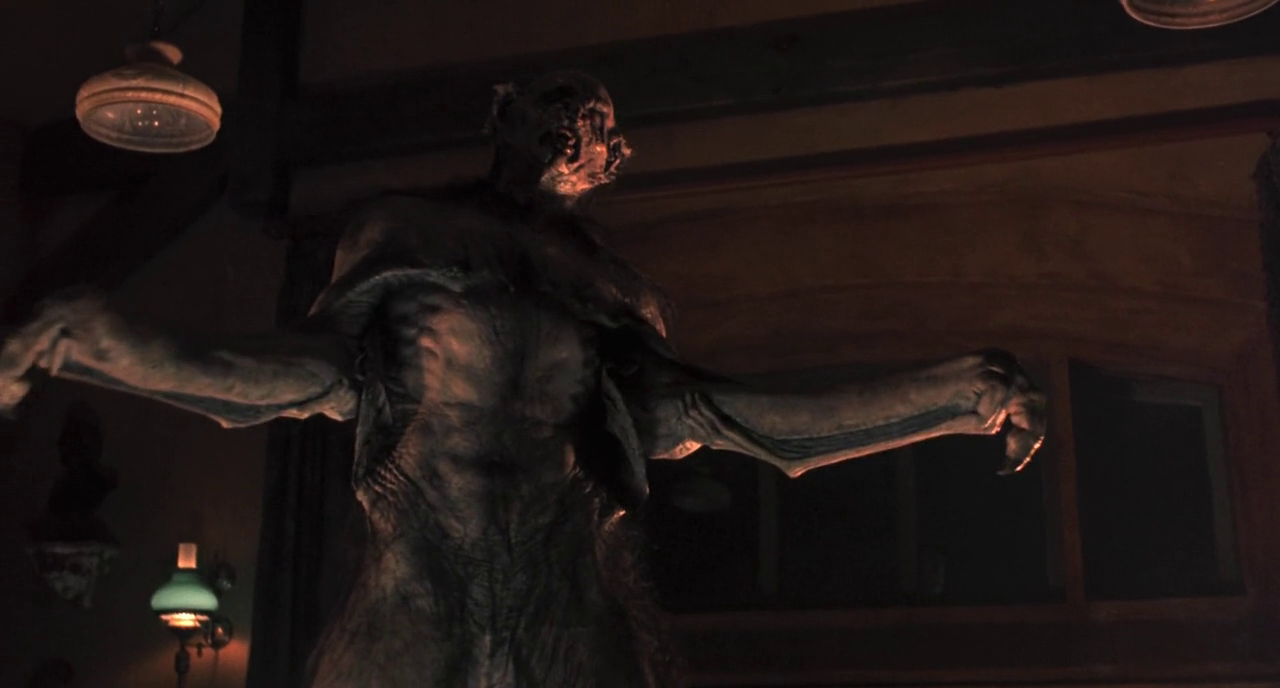
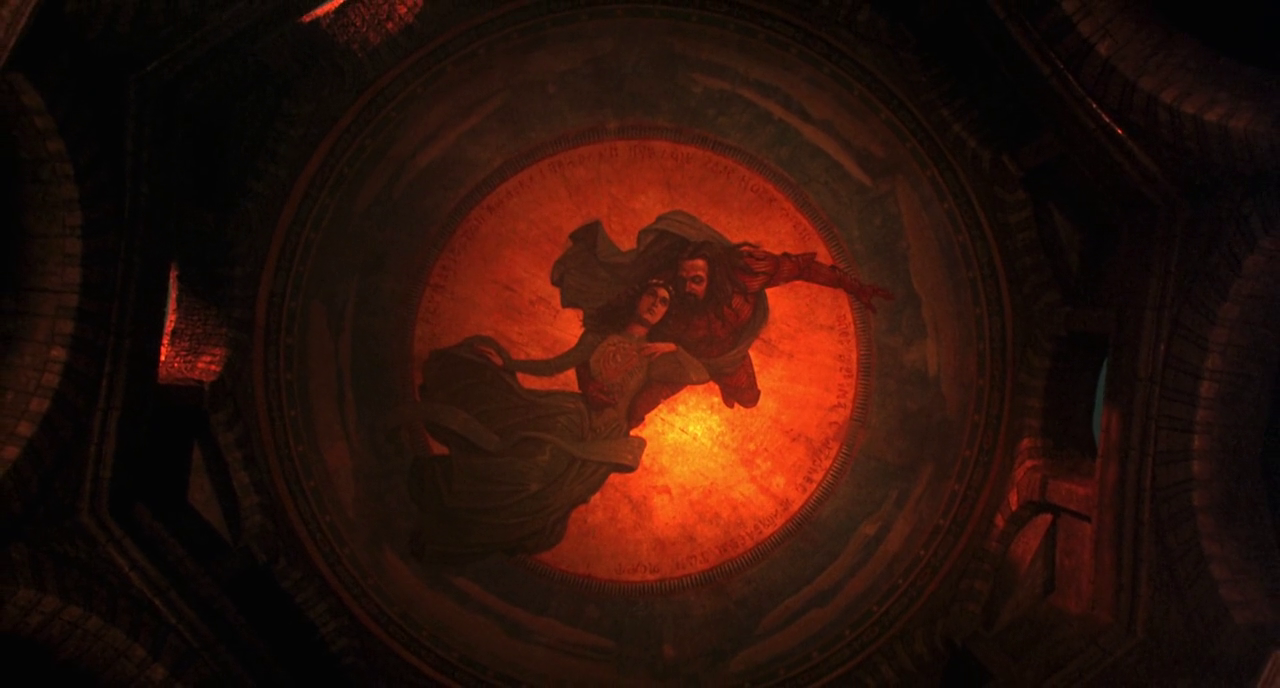
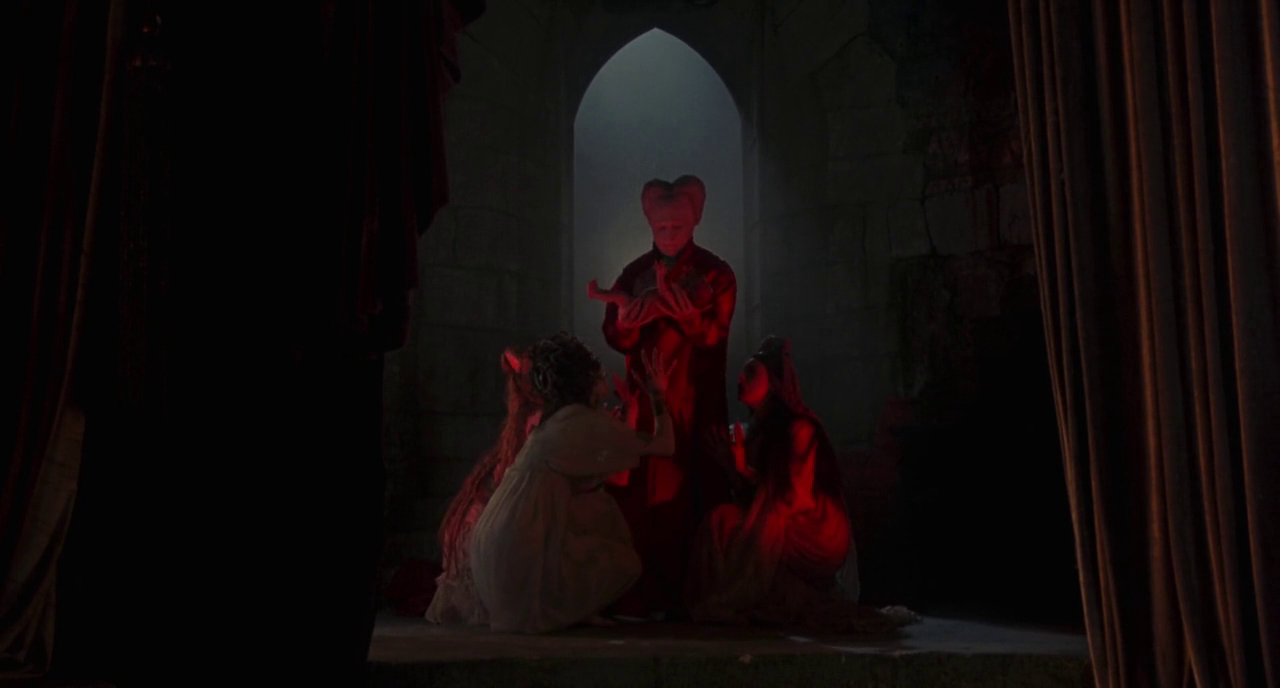
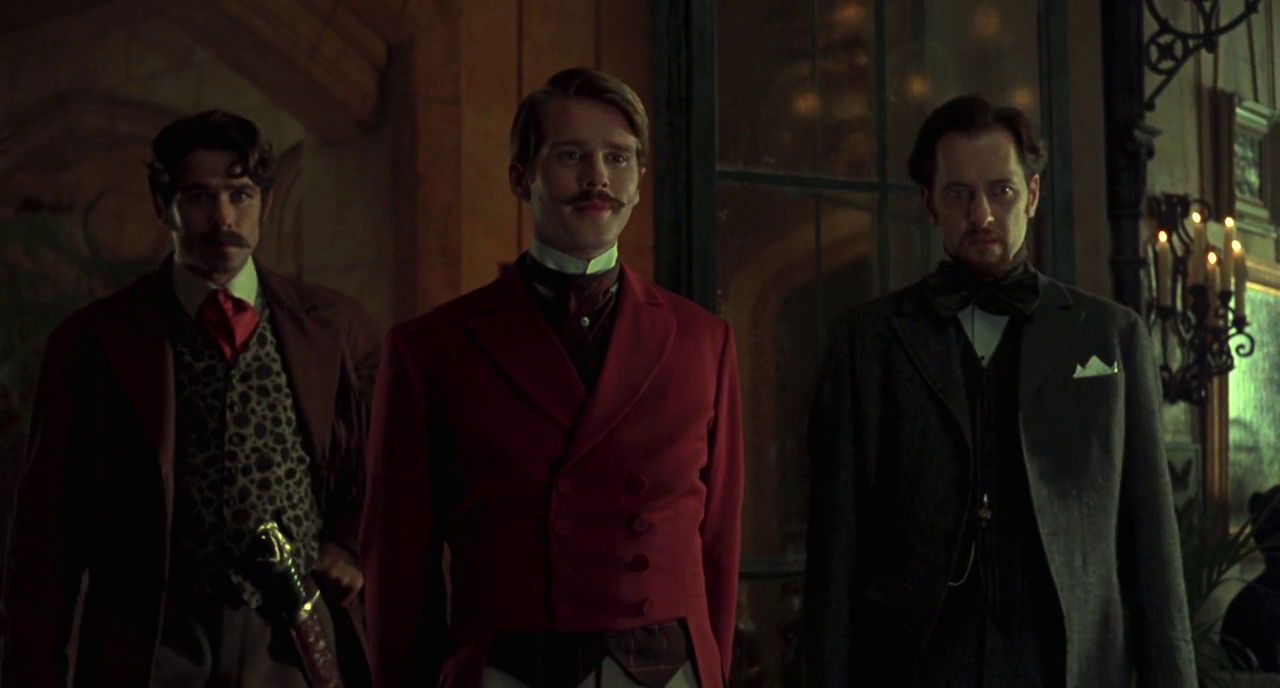
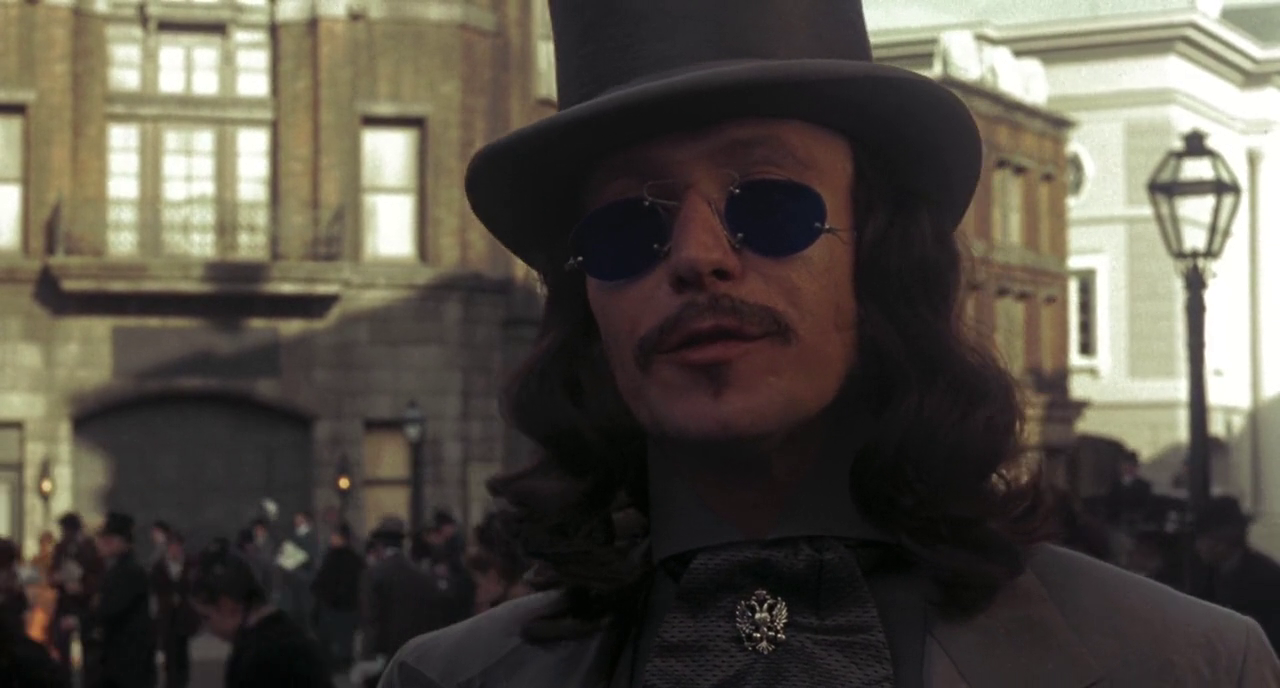

No comments:
Post a Comment